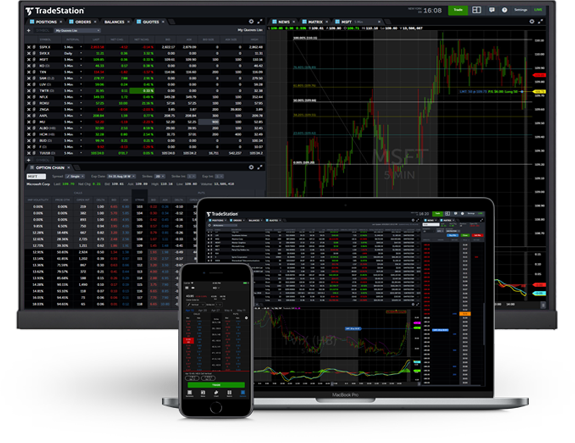ETFs Trading
ETFs, or Exchange-Traded Funds, have become an increasingly popular investment vehicle over the past few decades.

ETFs are securities that track a basket of underlying assets, such as stocks, bonds, commodities, or currencies. They are traded on stock exchanges, just like stocks, and provide investors with a cost-effective and convenient way to gain exposure to a diversified portfolio of assets. One of the main advantages of ETFs is their ease of trading. Unlike traditional mutual funds, which can only be traded once a day at the end of the trading session, ETFs can be bought and sold throughout the trading day, just like individual stocks. This means that investors have the flexibility to adjust their positions quickly in response to market changes or news events, without having to wait for the next trading session.
Another advantage of ETFs is their low fees. Because ETFs are passive investment vehicles that track an index or a basket of assets, they have lower management fees than actively managed funds. Additionally, because they are traded on an exchange, investors can avoid the higher fees associated with buying and selling individual stocks or bonds.
ETFs also provide investors with access to a wide range of asset classes and sectors. For example, an investor can gain exposure to a diversified portfolio of stocks, bonds, and commodities with a single ETF. This makes it easier for investors to build a diversified portfolio that meets their investment goals and risk tolerance.
However, there are some risks associated with ETF trading. One risk is liquidity risk, which refers to the possibility that an investor may not be able to sell their shares at the current market price. This can happen if there is not enough trading volume in the ETF, or if market conditions are volatile. Additionally, ETFs that track less liquid assets, such as commodities or emerging markets, may be subject to higher volatility and greater price fluctuations.
In conclusion, ETFs are a versatile investment vehicle that provide investors with a low-cost, convenient way to gain exposure to a diversified portfolio of assets. However, investors should be aware of the risks associated with ETF trading, such as liquidity risk, and should carefully consider their investment goals and risk tolerance before investing in ETFs.
